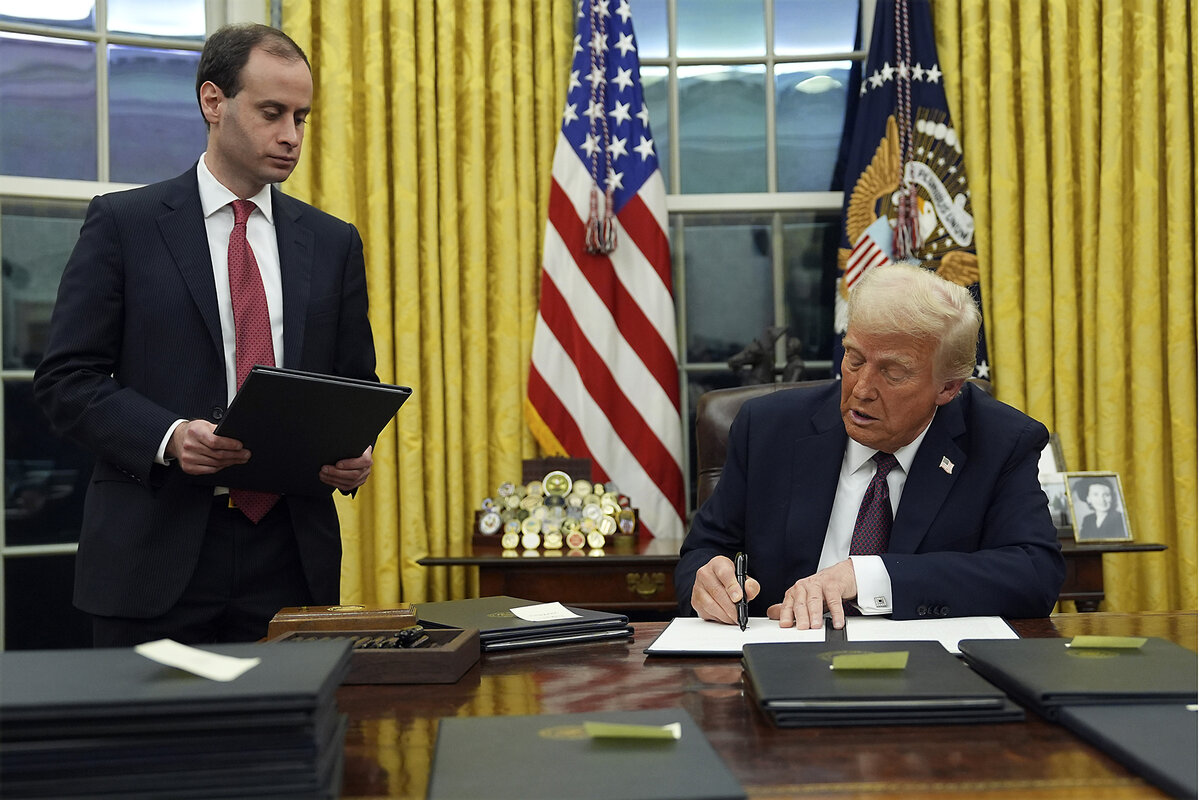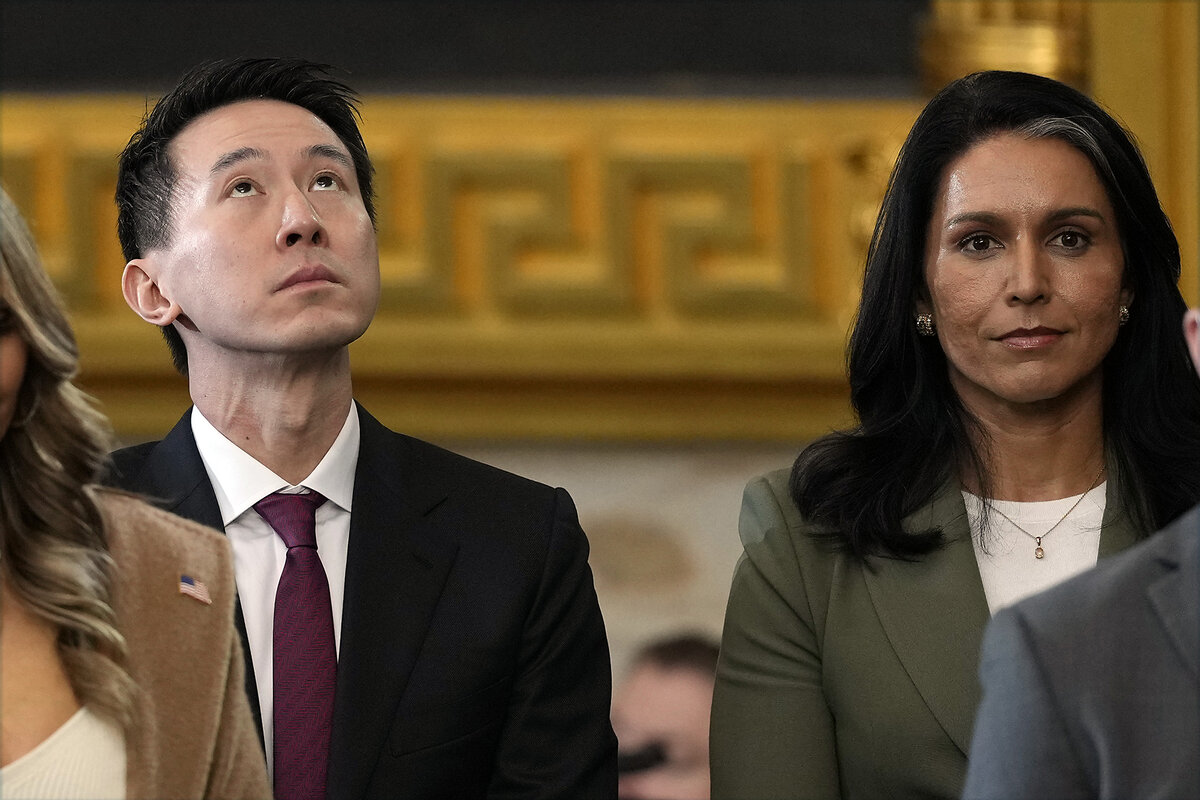Banned or not? What’s next for TikTok in the US.
Loading...
| Washington
Users of TikTok, including about one-third of U.S. adults, have been on a roller coaster over the past few days, amid a legal tussle involving all three branches of America’s government as well as China.
On Jan. 17, the Supreme Court unanimously upheld a law banning TikTok, citing security concerns about the app’s Chinese ownership. TikTok shut down its services the next day, but came back after President Donald Trump announced he would sign an executive order to delay the ban. Although TikTok remains up and running for current users, its future is uncertain.
Millions of Americans have become fans of the social platform built around catchy short videos. Many see it as a source of entertainment, while others have built successful businesses on it. Both Instagram and YouTube have tried to present themselves as alternatives for users, but TikTok fans say these platforms aren’t the same – and some are migrating to another Chinese app. President Trump’s efforts to negotiate a deal keeping TikTok in the U.S. are running up against legal uncertainties and unresolved data privacy issues.
Why We Wrote This
Congress and the Supreme Court recognize national security concerns around the Chinese ownership of TikTok. Those issues will need clarifying as President Donald Trump seeks a deal to keep the app going for U.S. users.
What is the latest on TikTok’s status?
The law upheld by the Supreme Court required TikTok’s Chinese parent company, ByteDance, to sell the app or shut it down by Jan. 19. Although the Biden administration said it wouldn’t enforce the ban, TikTok shut down its services a day before the deadline. The app restored services on Jan. 20 after Mr. Trump announced he would sign an executive order to extend the time period before the ban took effect.
On his first day in office Monday, Mr. Trump fulfilled that promise, signing an executive order to delay the ban for 75 days. The order instructed his attorney general not to enforce the law, and stated that companies that distributed TikTok would be protected from penalties. Currently, TikTok is functioning on users’ phones but is not available in app stores.
What is the Trump administration doing?
Mr. Trump tried to ban TikTok during his first presidential term, but he has recently been an advocate for saving it. He has credited his change of heart in part to sympathy for the young people who turned out to vote for him. In a brief Mr. Trump submitted to the Supreme Court in December, he noted users’ free speech rights and warned that a ban might set “a dangerous global precedent” of government overreach.
Mr. Trump’s legal authority for his executive action delaying the ban is unclear. Under the law’s conditions, Mr. Trump has the authority to extend TikTok’s lifespan for up to 90 days if there has been “significant progress” on divestment. But TikTok’s parent company, ByteDance, has so far not expressed any willingness to sell the app.
Mr. Trump suggested he will use the next 75 days to try to make a deal with China to save the app. He said on Truth Social on Sunday that he “would like the United States to have a 50% ownership position in a joint venture.” The details of how that would play out are murky. ByteDance considers the TikTok algorithm – which picks the content shown to users – to be important intellectual property, and thus has been unwilling to sell it. To fulfill the conditions of the ban passed by Congress, both TikTok and its algorithm must be under American control.
How are users responding?
From its outset, the controversy has pitted rising concerns about data security – and an algorithm that critics say amounts to harmfully addictive and pro-Chinese social media – against a user base filled with passionate fans of the platform.
A number of TikTok users have recently flocked to a Chinese app called RedNote. The platform, which was originally designed as a foreign travel guide, features videos similar to TikTok. By Jan. 14, the hashtag “TikTok refugee” on RedNote had gained 36.2 million views.
The move to RedNote is a protest act for users, but interest may fizzle if TikTok is reinstated, says Justin Huang, an assistant professor at the University of Michigan who studies social media. “They were looking for an action that would really express a lot of that frustration,” he says.
Some technology experts say RedNote poses even more of a national security threat than TikTok, since it stores users’ data in China. If its popularity does keep growing, RedNote could face its own ban.
For some content creators on TikTok, there’s more at stake in the ban than just entertainment. Josie Stoffan planned to get a work-study job at the University of Michigan, but after one of her TikTok videos “blew up,” the college sophomore realized she could use the app to help pay for tuition. She posts college lifestyle videos at least once a day, and makes money off of brand deals. Now all of that is up in the air.
“There’s so much uncertainty, and I feel like I’m just walking on eggshells all the time,” she says. “Between ByteDance and Trump, I feel like us creators are kind of being used as a pawn.”
What are the national security concerns?
Proponents of the ban fear that TikTok could give the Chinese government access to users’ personal data. That’s because ByteDance is subject to Chinese cybersecurity laws that allow the government to compel it to turn over consumer data for national security reasons.
TikTok CEO Shou Zi Chew has insisted that the Chinese government has never asked TikTok for its data. That wasn’t enough to assuage most lawmakers in Congress, who grilled Mr. Chew in a 2023 hearing and passed the ban the next year with strong bipartisan support.
Another concern is that China could use the app’s algorithm to influence Americans’ political views, which some experts say is already happening. A 2023 report by two research groups found that posts related to subjects like the Hong Kong protests were noticeably missing from users’ feeds.
Some argue these threats are purely theoretical. Democratic Representative Alexandria Ocasio-Cortez recently posted a TikTok video about the ban, telling viewers that, “What was presented to all of the members voting on this thing was not very compelling. There was no real information that was given that was a smoking gun, that was anything specific.”
Still, the possibility of these threats is enough for others. Last March, then-FBI Director Christopher Wray told the U.S. Senate that Chinese influence operations “are extraordinarily difficult to detect, which is part of what makes the national security concerns represented by TikTok so significant.”








